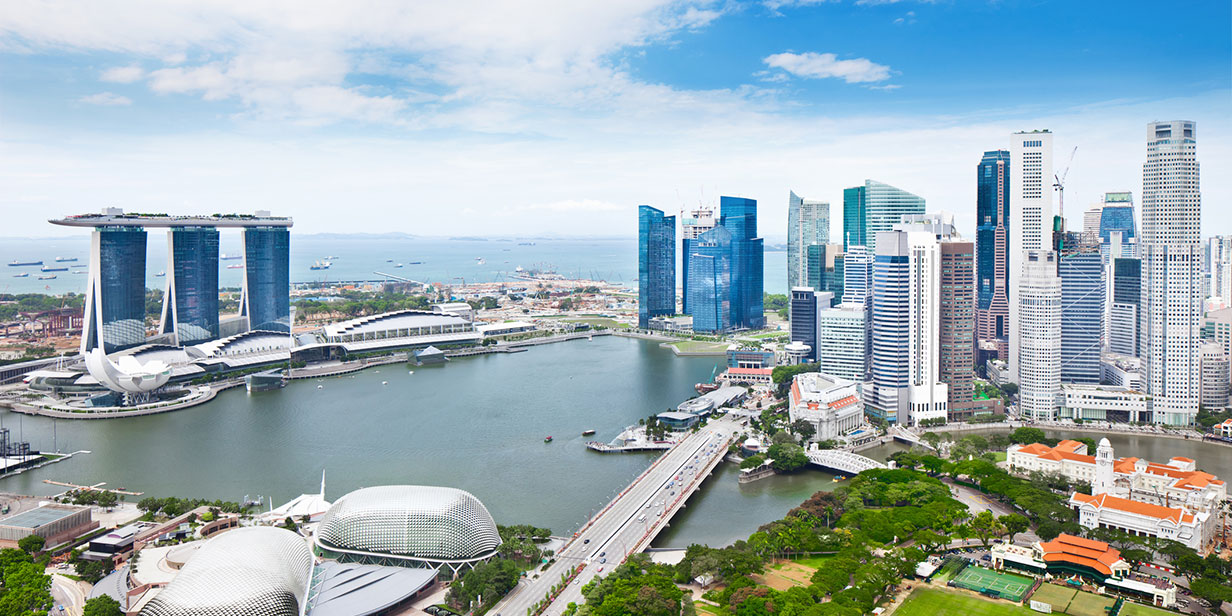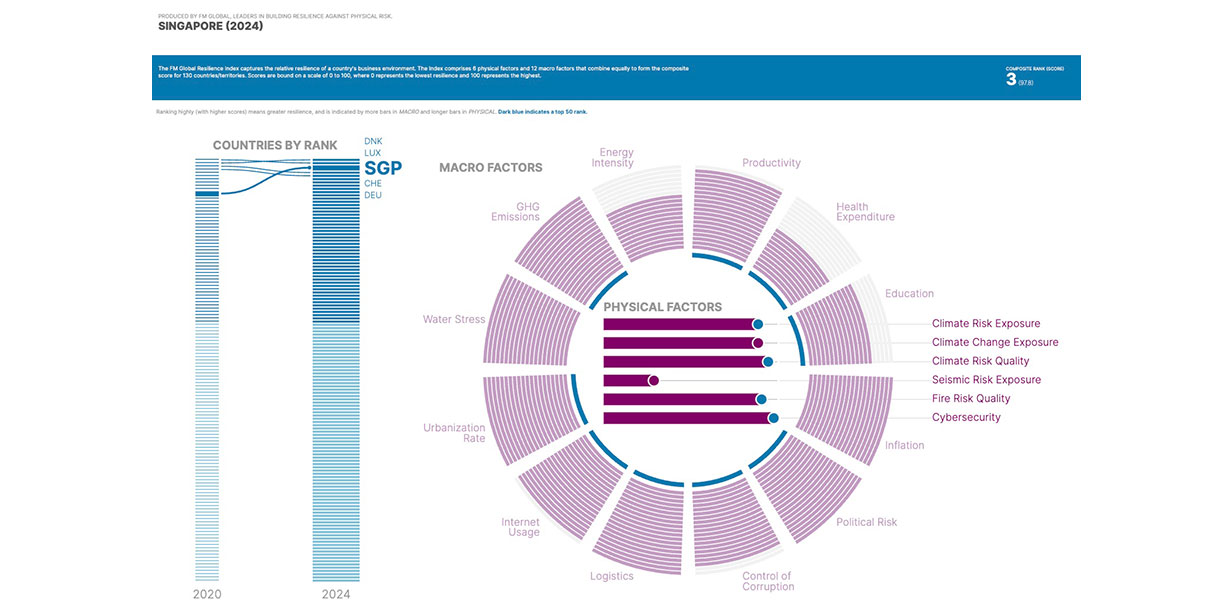Singapore: A champion of resilience
In this series, we take a closer look at how key Asia countries and territories ranked in this year’s FM Resilience Index.

In this series, we take a closer look at how key Asia countries and territories ranked in this year’s FM Resilience Index. The FM Resilience Index is a tool developed to help understand a country's ability to swiftly recover after disruptive events as well as which risks are manageable.
Ranked No. 3 on the 2024 FM Resilience Index, Singapore retains its status as Asia’s resilience champion. As one of the world’s most progressive and robust economies, the competitive country, which continues to set some of the highest performance benchmarks for business resilience globally, has maintained a presence at the top end of FM's Index over the past decade.
By any measure, Singapore is a resilience leader. Covering an area equivalent to New York City, its strategic location – supported by a robust economy and stable and efficient governance – has seen it consolidate its position as a global financial centre and a regional hub for global enterprise.
Singapore’s economy has rapidly developed within a generation. Its per capita Gross Domestic Product (GDP) was US$500 in 1965, on par with Mexico and South Africa. That grew to US$13,000 in 1990 – surpassing South Korea and Israel – and it now ranks in the top three globally at US$127,565, according to the World Bank. Anyone who has done business (or taken public transport) in Singapore will tell you it is one of the world’s most developed and open economies, serving as the Asia headquarters for global multinational companies, financial institutions, and technology research centres.

These attributes and more see Singapore rank No.1 for logistics, urbanisation, and political risk, and No. 3 for productivity in the FM Resilience Index. These high rankings reflect a harmony of hard and soft economic and political settings, carefully established over the past 50 years or more and built on top of its geographic advantage, providing a safe and efficient launch pad for global business into Asia.
Singapore’s resilience hasn’t been easily won, and defending it remains a key focus. It must manage inherent and emerging climate and geopolitical risks. It ranks No. 56 for climate change exposure, due to its tropical location and exposure to existential climate-related risks, such as rising sea levels and temperatures. Climate seismic risk quality and water stress are ranked No. 81 and No. 116, respectively, due to its proximity to earthquake hotspots nearby and the absence of natural resources – posing considerable concerns.
In response, Singapore has implemented a series of comprehensive environmental policies, including water conservation, clean energy promotion, and sustainable urban planning to address climate risk and promote greater economic sustainability. It is specifically addressing climate impact through its Singapore Green Plan 2030, incorporating the phased transition from fossil fuels to renewable alternatives, greening its buildings, and setting vehicle quotas to reduce emissions. While much of this remains a work in progress, Singapore’s greenhouse gas emissions rank No. 7, setting the standard for the world’s smaller economies dependent on carbon intensive energy and food imports.
Singapore’s No. 3 ranking is no fluke; it’s a genuine, forward-looking and dynamic nation that punches above its weight in the international arena. It continues to hold its place in the FM Resilience Index as a centre of business excellence in a fast-changing regional risk landscape, with strong regional influence. With its continued investments in resilience-focused economic policy, it is determined – and almost guaranteed – to remain at the top.
